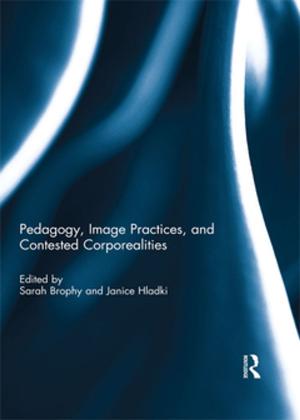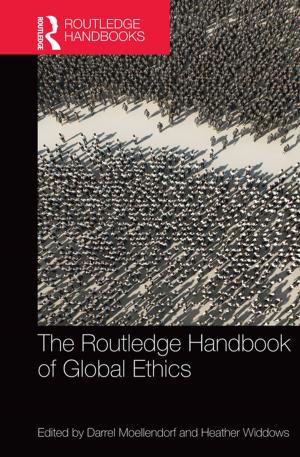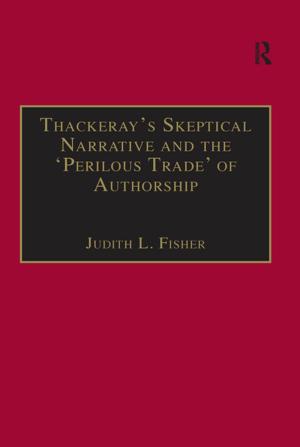Their Fair Share
Women, Power and Criticism in the Athenaeum, from Millicent Garrett Fawcett to Katherine Mansfield, 1870–1920
Fiction & Literature, Literary Theory & Criticism| Author: | Marysa Demoor | ISBN: | 9781315363394 |
| Publisher: | Taylor and Francis | Publication: | May 15, 2017 |
| Imprint: | Routledge | Language: | English |
| Author: | Marysa Demoor |
| ISBN: | 9781315363394 |
| Publisher: | Taylor and Francis |
| Publication: | May 15, 2017 |
| Imprint: | Routledge |
| Language: | English |
Their Fair Share identifies and contextualises many previously unknown critical writings by a selection of well-known turn-of-the-century women. It reveals the networks behind an influential journal like the Athenaeum and presents a more shaded assessment of its position in the field of cultural production, in the period 1870-1920. The Athenaeum (1828-1921) has often been presented as a monolithic institution offering its readers a fairly conservative, male oriented appreciation of a wide variety of contemporary publications. On the basis of archival and biographical material this book presents an entirely new analysis of the reviewing policy of this weekly from 1870, when it came into the hands of the politician Sir Charles Wentworth Dilke, up to and including 1919-1920 when John Middleton Murry became its editor. Dilke, and his editor Norman MacColl, are here revealed to have been committed feminists who enlisted some of the most influential women of their time as critics for their journal. The book looks more specifically at the contributions by, a.o., Millicent Garrett Fawcett, Emilia Dilke, Jane Harrison and Augusta Webster.
Their Fair Share identifies and contextualises many previously unknown critical writings by a selection of well-known turn-of-the-century women. It reveals the networks behind an influential journal like the Athenaeum and presents a more shaded assessment of its position in the field of cultural production, in the period 1870-1920. The Athenaeum (1828-1921) has often been presented as a monolithic institution offering its readers a fairly conservative, male oriented appreciation of a wide variety of contemporary publications. On the basis of archival and biographical material this book presents an entirely new analysis of the reviewing policy of this weekly from 1870, when it came into the hands of the politician Sir Charles Wentworth Dilke, up to and including 1919-1920 when John Middleton Murry became its editor. Dilke, and his editor Norman MacColl, are here revealed to have been committed feminists who enlisted some of the most influential women of their time as critics for their journal. The book looks more specifically at the contributions by, a.o., Millicent Garrett Fawcett, Emilia Dilke, Jane Harrison and Augusta Webster.















